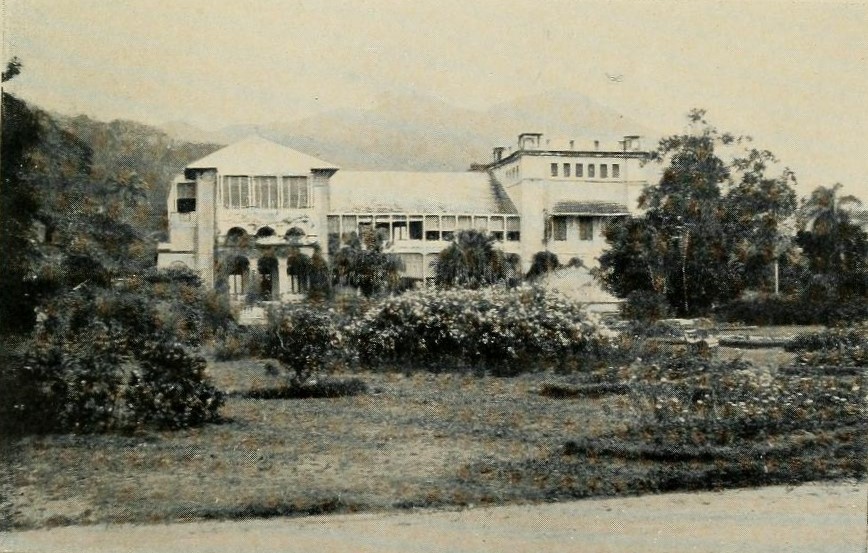|
Crazy (singer)
Edwin Ayoung (born 1944), better known as Crazy, is a Trinidadian calypsonian. He has been active since the mid-1970s and is one of the most successful artists from Trinidad and Tobago. Career Ayoung was born in 1944 at Maraval Road, Port of Spain, Trinidad, one of eleven children to a Chinese Trinidadian father and an Afro-Venezuelan mother.Thompson, Dave (2002) ''Reggae & Caribbean Music'', Backbeat Books, , pp. 81–83Guilbault, Jocelyne (2007) ''Governing Sound: The Cultural Politics of Trinidad's Carnival Musics'', University of Chicago Press, , pp. 119–120 As a youth he showed promise as a cricketer, but chose a career in music. He initially worked under the names Wong Ping and the Mighty Arawak, but was renamed 'Crazy' by fellow calypsonian Fred Farrell due to his extravagant performances. Crazy made his solo carnival debut in 1975 with "The Electrician", which was also released as a single. He followed this with "Satan's Coming" and "A Great Achievement", before signing ... [...More Info...] [...Related Items...] OR: [Wikipedia] [Google] [Baidu] |
Port Of Spain
Port of Spain ( ; Trinidadian and Tobagonian English, Trinidadian English: ''Port ah Spain'' ) is the capital and chief port of Trinidad and Tobago. With a municipal population of 49,867 (2017), an urban population of 81,142 and a transient daily population of 250,000, it is Trinidad and Tobago's third largest municipality, after Chaguanas and San Fernando, Trinidad and Tobago, San Fernando. Port of Spain is located on the Gulf of Paria, on the northwest coast of the island of Trinidad and is part of East–West Corridor, a larger conurbation stretching from Chaguaramas, Trinidad, Chaguaramas in the west to Arima in the east with an estimated population of 600,000. The city serves primarily as a retail and administrative centre and it has been the capital of the island since 1757. It is also an important financial services centre for the Caribbean [...More Info...] [...Related Items...] OR: [Wikipedia] [Google] [Baidu] |
Trinbago Unified Calypsonians' Organisation
The Trinbago Unified Calypsonians’ Organisation (TUCO) is a professional body representing the interests of calypsonians in Trinidad and Tobago and working to promote calypso music nationally and internationally. TUCO was established in 1993 and incorporated by an Act of Parliament in 1998. TUCO serves as the governing body for calypso in Trinidad and Tobago. History The Trinbago Unified Calypsonians’ Organisation was formed in 1993 by the merger of the Calypsonians' Association with the Trinbago Calypsonian Organisation. It was incorporated by Act No. 33 of 1998 of the Parliament of Trinidad and Tobago. In 1998 the government gave TUCO control of the national calypso contests, which had previously been managed by the National Carnival Committee, a state-controlled body. TUCO was given the responsibility of selecting and training judges for the competition and introduced a Calypso Queen, and later a Calypso King competition in addition to the Calypso Monarch competition. W ... [...More Info...] [...Related Items...] OR: [Wikipedia] [Google] [Baidu] |
Trinidad And Tobago People Of Venezuelan Descent
Trinidad is the larger, more populous island of the Republic of Trinidad and Tobago, the country. The island lies off the northeastern coast of Venezuela and sits on the continental shelf of South America. It is the southernmost island in the Caribbean. With an area of , it is also the fifth-largest in the Caribbean. Name The original name for the island in the Arawakan languages was which meant "Land of the Hummingbird". Christopher Columbus renamed it ('The Island of the Trinity'), fulfilling a vow he had made before setting out on his third voyage. This has since been shortened to ''Trinidad''. Indo-Trinidadians called the island चीनीदत्त , 𑂒𑂲𑂢𑂲𑂠𑂞𑂹𑂞 , , ''Chinidat'' or ''Chinidad'' in Trinidadian Hindustani which translated to the land of sugar. The usage of the term goes back to the 19th century when recruiters from India would call the island ''Chinidat'' as a way of luring workers into indentureship. On Tuesday, 31 July 1498 ... [...More Info...] [...Related Items...] OR: [Wikipedia] [Google] [Baidu] |

